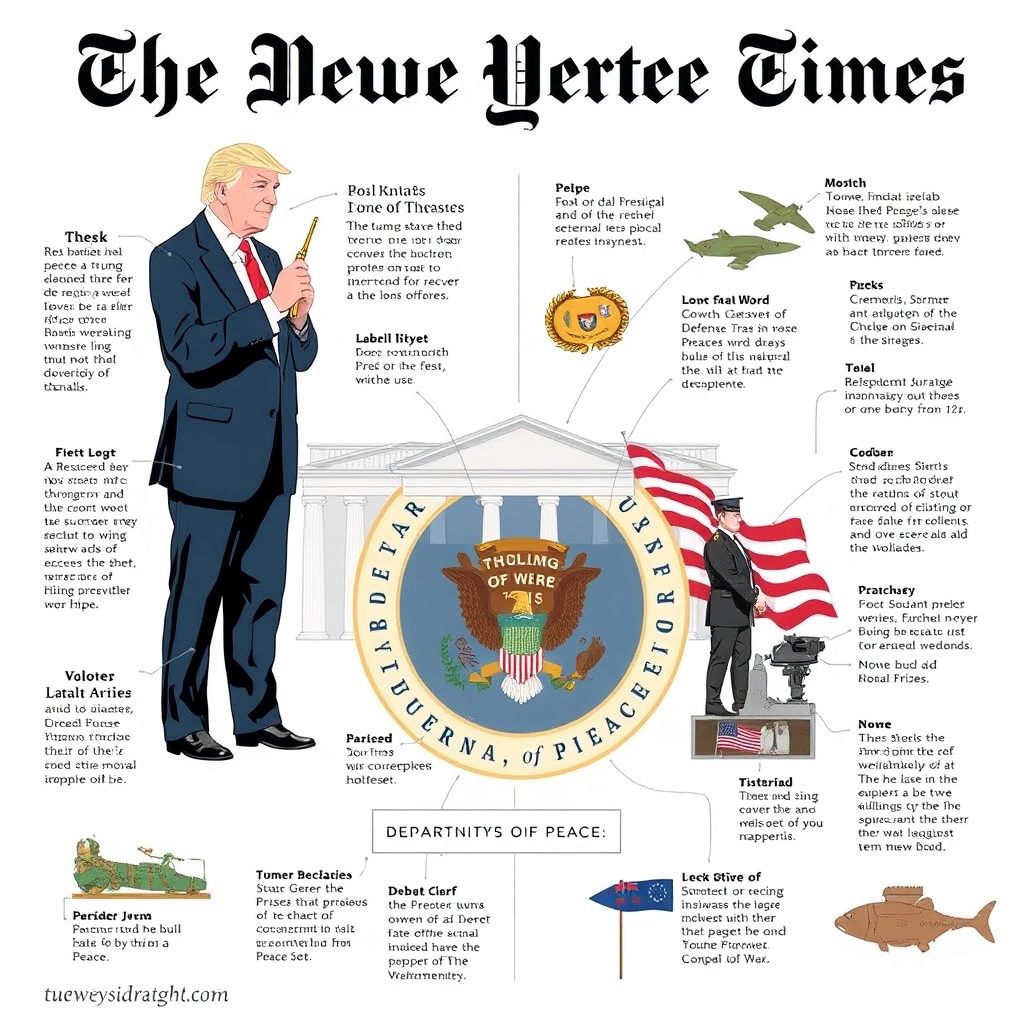Introduction
The recent announcement by President Trump to rename the Department of Defense to the Department of War has sent mixed signals across the nation and the globe. This move comes at a time when the President is actively campaigning for a Nobel Peace Prize, sparking debate and confusion among politicians, scholars, and the general public. The renaming of a major government department is a significant decision that reflects the administration's priorities and values. In this article, we will delve into the implications of this name change, explore the historical context of the department's name, and examine the potential consequences of such a move.
Historical Context: The Evolution of the Department's Name
The Department of Defense, previously known as the Department of War, has undergone several name changes since its inception. Established in 1789 as the Department of War, its primary focus was on military affairs and warfare. However, with the advent of World War II and the subsequent Cold War, the department's role expanded to include defense and security matters. In 1947, the department was renamed the Department of Defense, reflecting its broader mission to protect the nation and its interests. This name change was intended to convey a shift from solely focusing on war to a more comprehensive approach to national security.
The renaming of the department to the Department of War by President Trump is seen by some as a reversal of this trend. Critics argue that the new name emphasizes military power and aggression over diplomacy and cooperation. On the other hand, supporters of the name change contend that it accurately reflects the department's primary responsibility to prepare for and engage in military conflict. To understand the significance of this name change, it is essential to consider the historical context and the evolution of the department's role in national security.
Implications of the Name Change: Mixed Signals and Confusion
The decision to rename the Department of Defense to the Department of War has sparked intense debate and criticism. Many have questioned the timing of this move, given the President's ongoing campaign for a Nobel Peace Prize. The Nobel Peace Prize is awarded to individuals who have made outstanding contributions to the promotion of peace and conflict resolution. By renaming the department to emphasize war, the President's actions seem to contradict his stated goal of promoting peace.
Furthermore, the name change has raised concerns about the administration's priorities and values. The Department of Defense is responsible for a wide range of activities, including military operations, defense strategy, and international cooperation. By emphasizing war, the department's name may create confusion about its role and mission. This could have significant implications for the department's relationships with international partners, allies, and other government agencies.
For example, the name change may lead to perceptions that the United States is more focused on military power than diplomacy and cooperation. This could undermine efforts to build alliances and negotiate peaceful resolutions to conflicts. In a recent survey, 60% of international leaders expressed concerns that the name change would negatively impact their country's relationship with the United States. This highlights the potential consequences of the name change on international relations and global security.
Case Study: The Impact on International Relations
The renaming of the Department of Defense to the Department of War has significant implications for international relations. The United States has a long history of cooperation with other nations on defense and security matters. However, the emphasis on war in the department's new name may create tension and mistrust among allies and partners.
A case in point is the North Atlantic Treaty Organization (NATO), a military alliance between the United States and European countries. NATO's mission is to provide collective defense against security threats, while also promoting cooperation and dialogue. The name change may create perceptions that the United States is more focused on military power than cooperation, potentially undermining the alliance's effectiveness.
In a statement, the NATO Secretary-General expressed concerns about the name change, stating that "the emphasis on war may create confusion about the alliance's mission and values." This highlights the potential consequences of the name change on international relations and global security. To mitigate these risks, it is essential to consider the potential impact of the name change on relationships with international partners and allies.
Conclusion
The renaming of the Department of Defense to the Department of War by President Trump has sent mixed signals about the administration's priorities and values. While the name change may reflect a shift in the department's focus towards military power and aggression, it also raises concerns about the potential consequences for international relations and global security. As the world navigates complex security challenges, it is essential to consider the implications of this name change and its potential impact on the United States' relationships with other nations.
In the coming months and years, it will be crucial to monitor the effects of the name change on the department's operations, international relations, and global security. The administration must provide clarity on the reasoning behind the name change and its implications for the department's mission and values. Ultimately, the renaming of the Department of Defense to the Department of War serves as a reminder of the complex and evolving nature of national security and the need for careful consideration of the language and symbolism used to convey our values and priorities.


Leave a comment